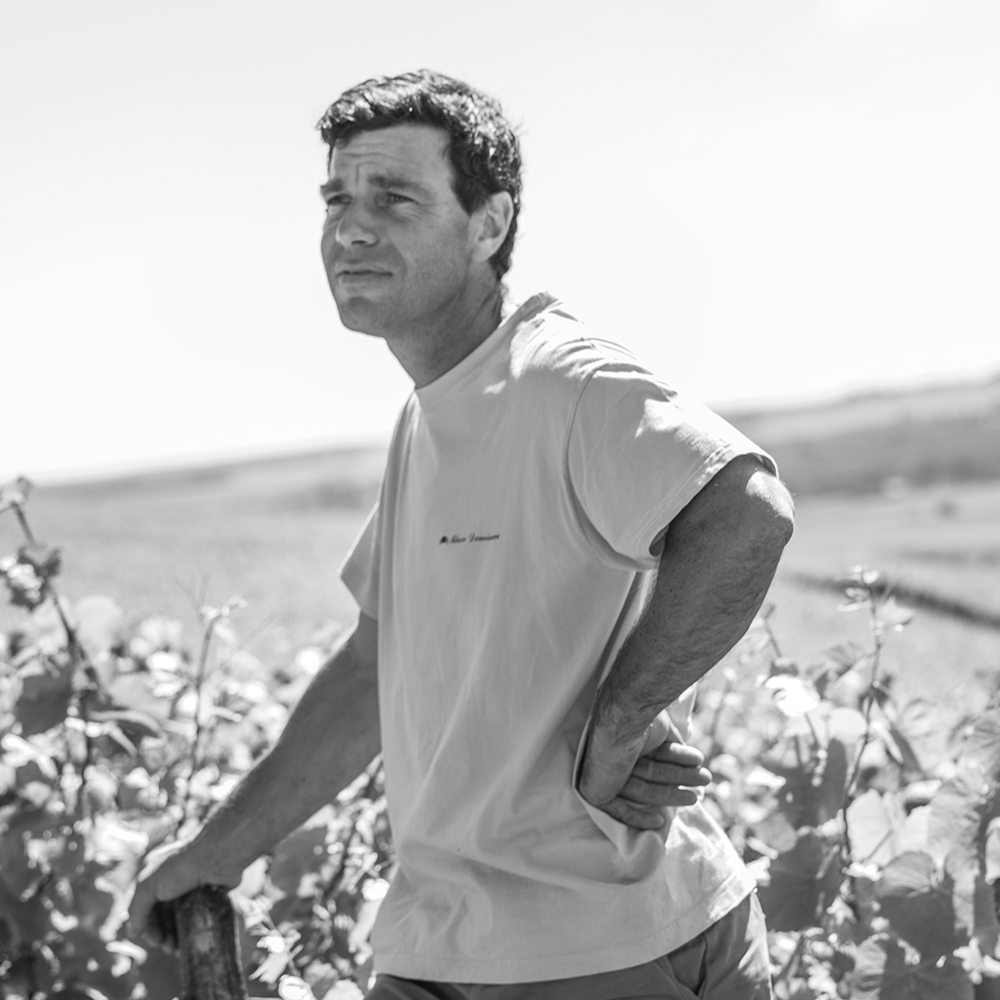A spotlight on David Sautereau
Author: Issariya Morgan

David Sautereau, the winemaker behind our Own Selection Sancerre, talks to us about his relationship with the region’s unique ecology and the joy of collaborating with us.
Following in the footsteps of his father and grandfather, David Sautereau makes fresh, delicately fruity wines from the Sauvignon Blanc grape. “Sauvignon Blanc is grown all over the world, but the wine we make here in Sancerre is unique because of the terroir. This is what I want to express,” he says.
Domaine Sautereau is based in the village of Crézancy, seven kilometres from Sancerre town. The Sautereau family have made wine here for nine generations, and David represents the tenth.
“Traditionally, it’s always been fathers and sons. But now, I have two daughters – so I think this estate will be run by my daughters in the future,” he says. “One is studying wine in Tours, and the other is studying agronomy in Angers. But I’m not pushing them; to do this work, you really have to love it. It’s a hard job to do at your best.”
The importance of travel
David didn’t immediately settle into a career at the winery. He travelled extensively, exploring his love for wine in foreign vineyards. “I’m the first generation in my family to travel and come back. Before, sons would always help their fathers so there was never an opportunity. But my parents were very encouraging: they pushed me to travel and go away.
“So, I studied in Burgundy and Champagne, where I got my degree in oenology. Then, I spent some time in Switzerland, where they have some great wines and grape varieties that we don’t have in France. It’s hard to find their wines outside Switzerland because they drink it all themselves,” he chuckles.
“After that, I did a harvest in California and I also spent some time in the vineyards in Australia. I travelled a lot and tasted different types of wine, which really developed my wine philosophy.”
Did his travels leave a long-term impact on his approach to winemaking?
“I came back with new ideas, but I also believe that we don’t have to change everything. I’m always experimenting to find new ways to improve the quality with each vintage, but I keep my family’s philosophy alive: capturing the freshness and fruitiness of the wine.
“I always encourage the young people at my winery to go away and see other things. When you stay in the same place, you can become closed. I think you have to go away to be sure that you’re truly happy at home.”
The ecology of the vineyard
David speaks passionately about maintaining a natural environment in the vineyard. “I try to do the best I can: take care of the soil, take care of the environment, work with the planet and the changing climate. We must take care of Mother Nature, which gives us this great wine.”
In today’s world, sustainability is an urgent issue for winemakers: they experience first-hand how global warming impacts their crops and harvest each year. Natural winemaking is increasingly becoming more popular. But the delicate balance of ecology in the vineyard hadn’t always been obvious to previous generations of vignerons on Domaine Sautereau.
“In the period after the war, when my grandfather was working, everything was done by hand,” says David. “But the vineyard was almost dead because they didn’t have the resources or the tools to do the work – it was completely overgrown with grass. So, they started using chemicals to kill the grass, which worked like magic for them at the time. But when we look back, it was too much.”
Fuelled by necessity, the previous generations’ choices in the vineyard left an impact which only fully revealed itself decades later.
“I came back to Sancerre in 1997. We had lots of storms at the time, and without the grass, the earth began to sink. So, the first thing I did was plant some grass in the middle of the vineyard. At first it was to combat the erosion, but then we saw how great it was for biodiversity too – and for the quality of the wine
“We’ve come full circle now: these days, the thinking is that if you’ve got grass in your vineyard, there’s biodiversity. Your vineyard is healthier because of the bacteria, the earthworms, the animals. The soil is alive.”
The pleasure of collaboration
Our Own Selection Sancerre – the fruit of our collaboration with David – is a blend of grapes grown on a range of the region’s rich soils.
He explains the three types of soil influencing the wine’s character. Chalky caillotte gives the wine its freshness and minerality. Clay-enriched Kimmeridgian limestone – which is also the predominant soil type in Chablis – gives a roundness in the middle of the palate. And Terres blanches, “which dates back 150 million years and contains oysters in the soil,” gives the wine its saltiness. The result is a wine which is balanced and complex, fresh and dynamic – even in warmer vintages.
“It’s a big pleasure to work on this Own Selection wine together,” says David. “We are always learning so much from each other and sharing experiences. Each vintage, the collaboration with Berry Bros. & Rudd pushes me to do better and better. It’s a great challenge.”
I ask David on what occasions he would enjoy his wine. “Oh!” he exclaims, “all the time.”
He laughs and considers the question seriously. “It makes a great apéritif. It would be nice with some fish, seafood or oysters. It would also be great with some blue cheese, goat’s cheese or Beaufort cheese from the Alps. Or just with good company or friends.”
And what, I ask, is he looking forward to most this year?
“The best thing this year would be for people to be together again and share a good wine. This will be my wish for 2021.”


